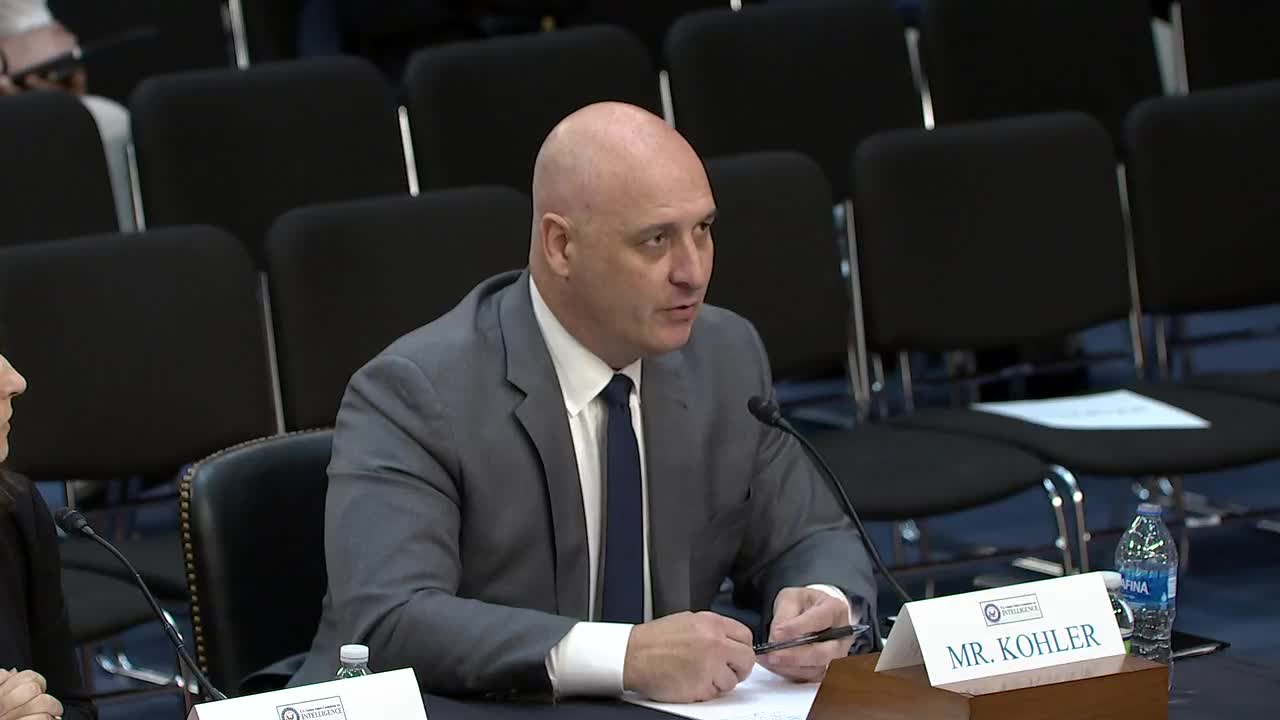Chinese Influence Campaigns Target US Elections Using AI and Data Harvesting Techniques
January 15, 2025 | Senate Select Committee on Intelligence, Special, Select and Other Committees - House & Senate, Congressional Hearings Compilation
This article was created by AI summarizing key points discussed. AI makes mistakes, so for full details and context, please refer to the video of the full meeting. Please report any errors so we can fix them. Report an error »

The Senate Select Committee on Intelligence convened on January 15, 2025, for an open hearing to discuss the nomination of John L. Ratcliffe as the Director of the Central Intelligence Agency. The meeting focused on the growing influence of the Chinese government in the United States, particularly through data collection and disinformation campaigns.
The session began with discussions on how Chinese firms and proxies are harvesting personal data from American citizens. Experts highlighted that these entities are acquiring information for marketing and advertising purposes, which poses significant risks as safeguards against such practices are lacking. The panelists noted that the Chinese government has a well-organized apparatus dedicated to collecting information on local and state officials, giving them an advantage in influencing decision-making processes.
A notable point raised was the use of generative AI by Chinese influence campaigns on social media. This technology allows for the rapid creation of visually appealing and deceptive content, which has been increasingly effective in engaging audiences. The experts expressed concern that these tactics could lead to the creation of false narratives and misrepresentation of U.S. voters, particularly in the context of upcoming elections.
Senator Collins inquired whether the Chinese government has successfully altered policy outcomes in the U.S. The panelists provided insights, indicating that while direct changes may be hard to pinpoint, the Chinese influence has effectively shifted the incentive structures for American businesses and policymakers. Instances were cited where economic threats from China have stifled legislative efforts related to human rights.
The discussion also touched on the presence of Chinese influence within American universities. Experts warned that the influx of Chinese funding and partnerships could pose national security risks, particularly in the fields of science and technology. They emphasized the need for better due diligence in university partnerships to mitigate these risks.
The hearing concluded with a recognition of the ongoing challenges posed by Chinese influence operations and the importance of vigilance in safeguarding American interests. The committee plans to continue monitoring these developments closely as they prepare for future legislative actions.
The session began with discussions on how Chinese firms and proxies are harvesting personal data from American citizens. Experts highlighted that these entities are acquiring information for marketing and advertising purposes, which poses significant risks as safeguards against such practices are lacking. The panelists noted that the Chinese government has a well-organized apparatus dedicated to collecting information on local and state officials, giving them an advantage in influencing decision-making processes.
A notable point raised was the use of generative AI by Chinese influence campaigns on social media. This technology allows for the rapid creation of visually appealing and deceptive content, which has been increasingly effective in engaging audiences. The experts expressed concern that these tactics could lead to the creation of false narratives and misrepresentation of U.S. voters, particularly in the context of upcoming elections.
Senator Collins inquired whether the Chinese government has successfully altered policy outcomes in the U.S. The panelists provided insights, indicating that while direct changes may be hard to pinpoint, the Chinese influence has effectively shifted the incentive structures for American businesses and policymakers. Instances were cited where economic threats from China have stifled legislative efforts related to human rights.
The discussion also touched on the presence of Chinese influence within American universities. Experts warned that the influx of Chinese funding and partnerships could pose national security risks, particularly in the fields of science and technology. They emphasized the need for better due diligence in university partnerships to mitigate these risks.
The hearing concluded with a recognition of the ongoing challenges posed by Chinese influence operations and the importance of vigilance in safeguarding American interests. The committee plans to continue monitoring these developments closely as they prepare for future legislative actions.
View full meeting
This article is based on a recent meeting—watch the full video and explore the complete transcript for deeper insights into the discussion.
View full meeting